11+ Sample HR Outsourcing Proposal
-
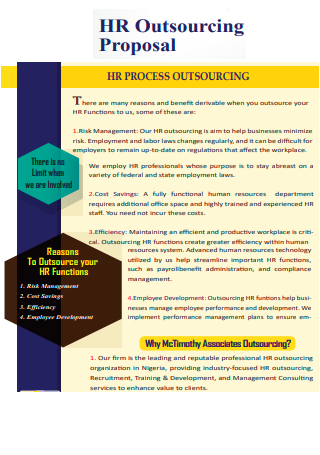
HR Process Outsourcing Proposal
download now -
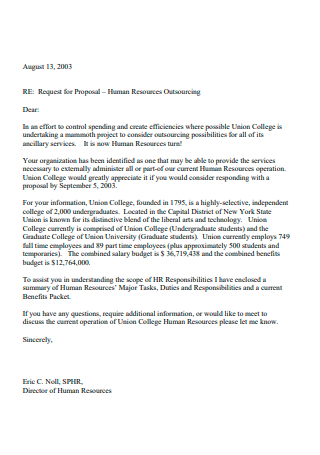
HR Outsourcing Proposal Template
download now -
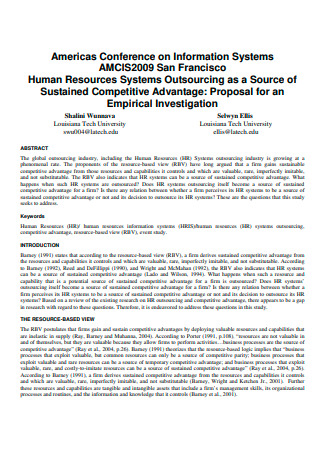
HR Outsourcing Proposal in PDF
download now -
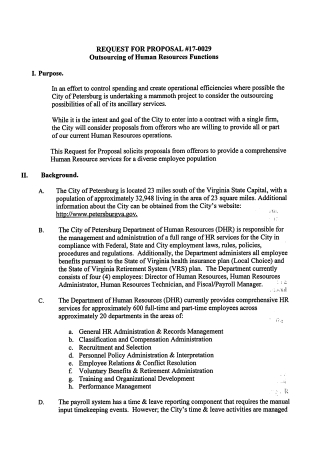
HR Functions Outsourcing Proposal
download now -
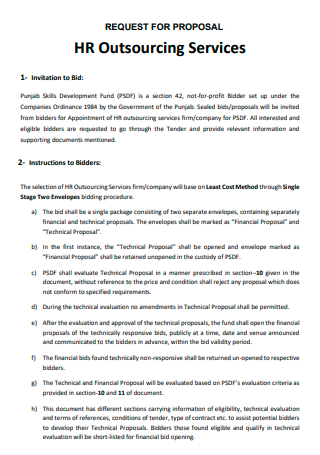
HR Outsourcing Services Proposal
download now -
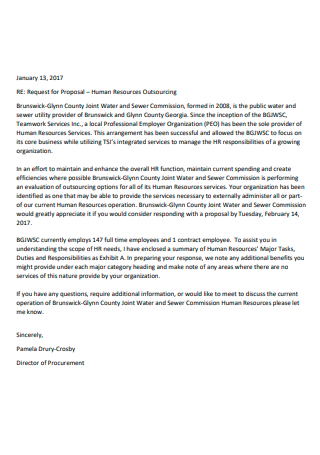
HR Outsourcing Proposal Example
download now -
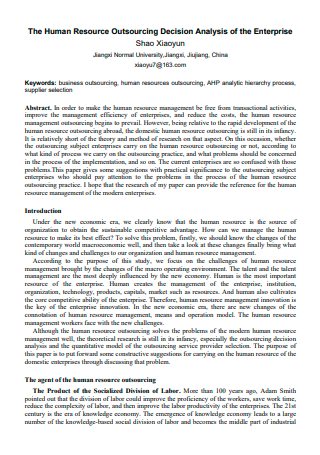
HR Outsourcing Decision Analysis Proposal
download now -
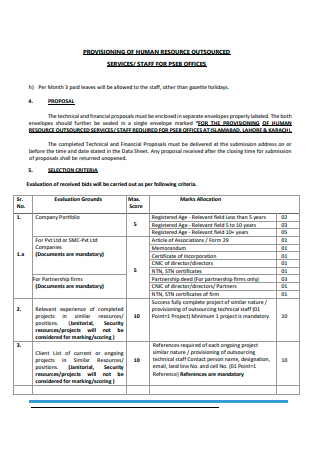
Basic HR Outsourced Proposal
download now -
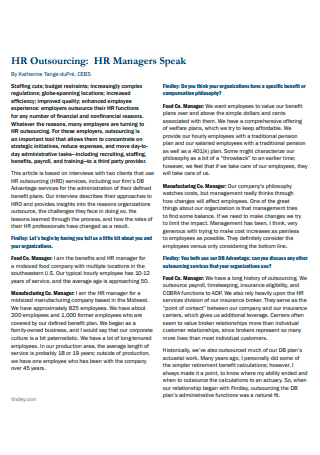
Printable HR Outsourcing Proposal
download now -
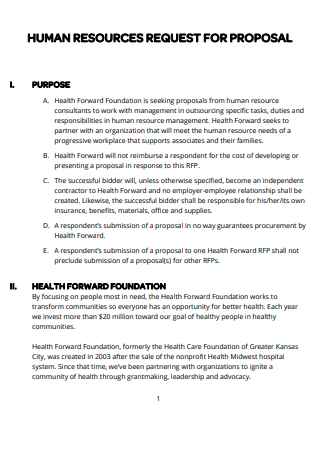
Standard HR Outsourcing Proposal
download now -
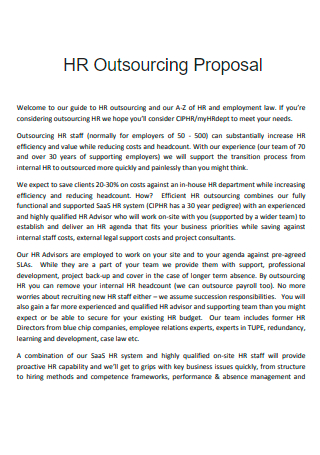
Formal HR Outsourcing Proposal
download now -
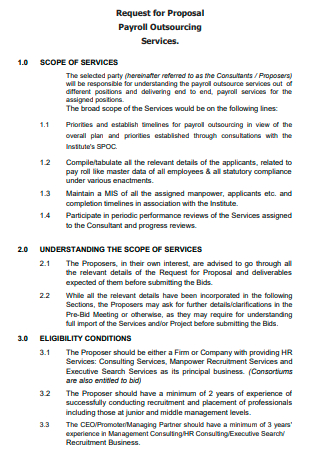
HR Payroll Outsourcing Services Proposal
download now
FREE HR Outsourcing Proposal s to Download
11+ Sample HR Outsourcing Proposal
What Is an HR Outsourcing Proposal?
Human Resources Functions that Companies can Outsource
How To Write an HR Outsourcing Proposal
FAQs
Is outsourcing a good idea for the HR department?
How do you write a recruitment proposal?
How does a company approach an outsourcing agency?
What Is an HR Outsourcing Proposal?
An HR outsourcing proposal or a manpower outsourcing proposal is a business document that is the first step in the outsourcing process. The HR outsourcing proposal is typically written by a vendor or service provider that is offering its services to various companies and organizations. The outsourcing proposal follows a business proposal format. The document usually contains a list of services that an agency or vendor is looking to provide an organization. It also details the different packages and services that a client can outsource from the outsourcing agency. In such cases, it focuses more on the recruitment side of things or the company that needs to outsource resources for their compensation and benefits. In other cases, a company can choose to outsource an entire human resources team. If a company only wants to outsource a recruitment team for their company, they are only required to have a placement proposal.
According to the statistical data provided by Statista about the global market size of outsourced services from 2000 to 2019, the global outsourcing market went up to over 92.5 billion US dollars in 2019 from 85.6 billion US dollars in 2018. The largest share of global outsourcing in the market comes from the United States, followed by Europe, the Middle East, and Africa.
Human Resources Functions that Companies can Outsource
Since human resources provide different functions in the organization, HR personnel serve a variety of functions and duties, which is why the entirety of the department can become overwhelming for smaller teams. Fortunately for many organizations, it is acceptable and possible to outsource individuals to fulfill and complete HR needs whenever appropriate. The section below details the most common human resources functions that companies can outsource. It also contains additional information about these roles and responsibilities within an organization.
How To Write an HR Outsourcing Proposal
Outsourcing provides businesses with the opportunity to be more efficient and save on expenses for particular situations. It is why many companies opt to outsource specific tasks and responsibilities to independent contractors. Before a company can outsource from agencies, the business owner or department manager writes an HR outsourcing proposal detailing the scope of work and why the business needs the individual. The section below details the steps in writing a comprehensive HR outsourcing proposal.
-
1. Define the Needs of the Business
The proposal must contain information about the project, detailing the scope of work for outsourced resources. Define the business needs, detailing the type of work that the individual must accomplish. It is advisable to be as specific and accurate as possible to ensure there is an accurate skill matching process for the company. Remember that there are partners that only utilize specific services, techniques, or tools and that they may not be suitable to fulfill the needs of the business. Being able to define the needs in detail allows the outsourcing agency to pair an individual that can fulfill, meet, and accomplish tasks, activities, and projects.
-
2. Detail the Amount of Workload
After selecting the best possible partner to address the needs of the company, the next step is to provide an outline of the workload for them to support the business. The workload includes the work schedule, detailing the number of work hours per day, the number of workers to complete daily tasks, and other valuable information that can aid the contractor to fulfill business needs and objectives.
-
3. Put Some Thought on Fluctuating Needs
There are outsourced projects that go on for a short period, but there are also those that extend years. As such, the person responsible for writing the proposal must consider the fluctuating needs that the teams need depending on the seasons, holidays, and others. Anticipating these fluctuations regarding needs can prepare the company for certain adjustments in the future, especially when writing the proposal. It is practical to define these needs to give a guarantee that these contractors can still meet deadlines despite fluctuations in various conditions.
-
4. Set a Clear Project Timeline and Budget
The outsourcing proposal must establish the possible costs and duration until the completion of the project. When it comes to service-oriented organizations, expectations can range from a client receiving customer support privileges for a duration. There must also be a clear definition of the project costs and project timeline, including additional fees or expenses that the contractor incurs towards the completion of the project.
-
5. Define Customer Service Expectations
Outsourced work puts contractors in direct communication with clients and customers of the business. As such these contractors must still uphold the organizational culture and implement the same level of quality and speed of service. The outsourced employees must demonstrate a similar level of customer service when working under the company. Ensure that they uphold what the business is about and emphasize that their behavior directly reflects the organization.
-
6. Establish Possible Solving Measures
Problems can still arise in the light of outsourcing individuals. As such, possible solutions to these problems must be present in the proposal. It is necessary to incorporate these plausible resolutions for the contractors to know what they can do to address the issues.
FAQs
Is outsourcing a good idea for the HR department?
There are advantages to outsourcing resources for the company. For one, it allows an organization to focus on creating strategies, improve accuracy and compliance with industry requirements, and leverage technologies to facilitate costs and tasks.
How do you write a recruitment proposal?
When writing a recruitment proposal, focus on indicating essential components like organization background and history, general requirements for the vacancy, scope of work, possible terms and conditions, and selection criteria.
How does a company approach an outsourcing agency?
There are different ways for an organization to approach an outsourcing agency to acquire employees to achieve their needs and goals. It is necessary to analyze, eliminate, optimize, automate, and outsource.
Many companies see outsourcing as a business asset as it brings many advantages to outsourcing qualified candidates for very specific tasks and projects that a company needs to address or accomplish. As such, companies must write a comprehensive outsourcing proposal and deliver them to various outsourcing agencies that can offer the most competent individuals with a specific amount of skills and expertise. Familiarize yourself with an HR outsourcing proposal by browsing and downloading the 11+ SAMPLE HR Outsourcing Proposal in PDF. Get yours today only at Sample.net.
